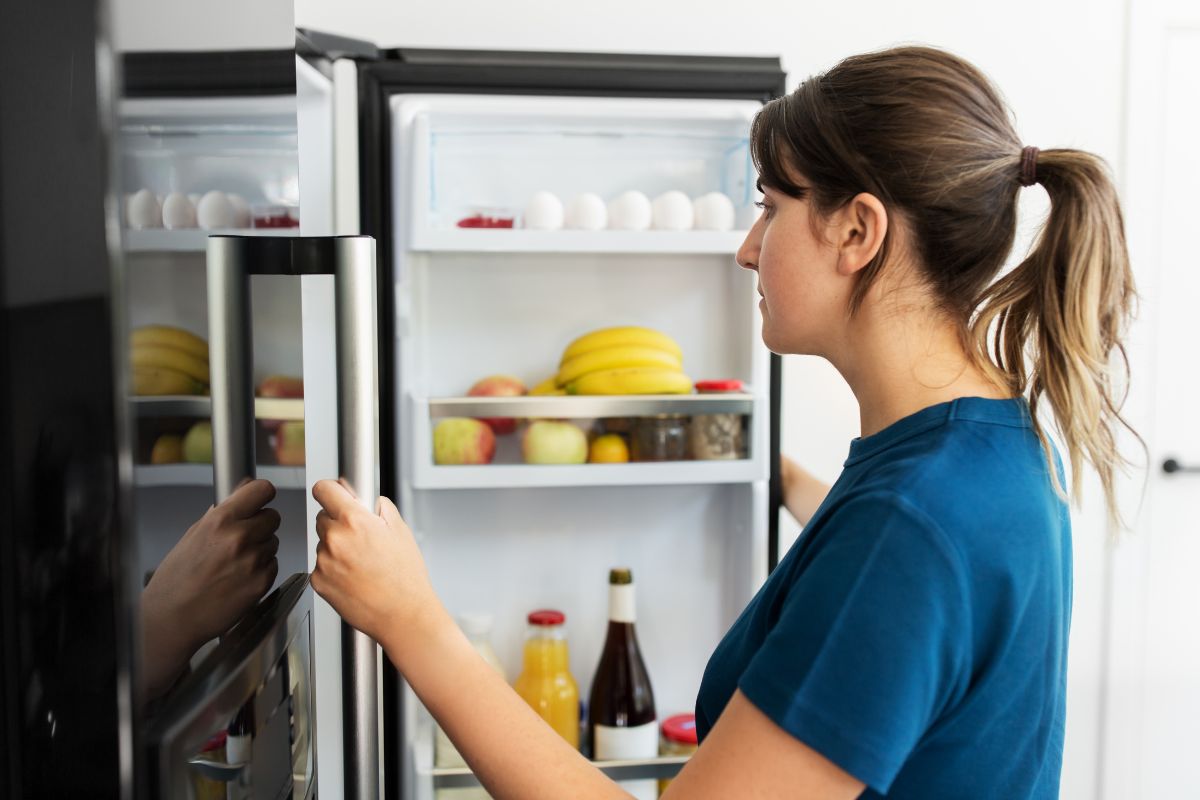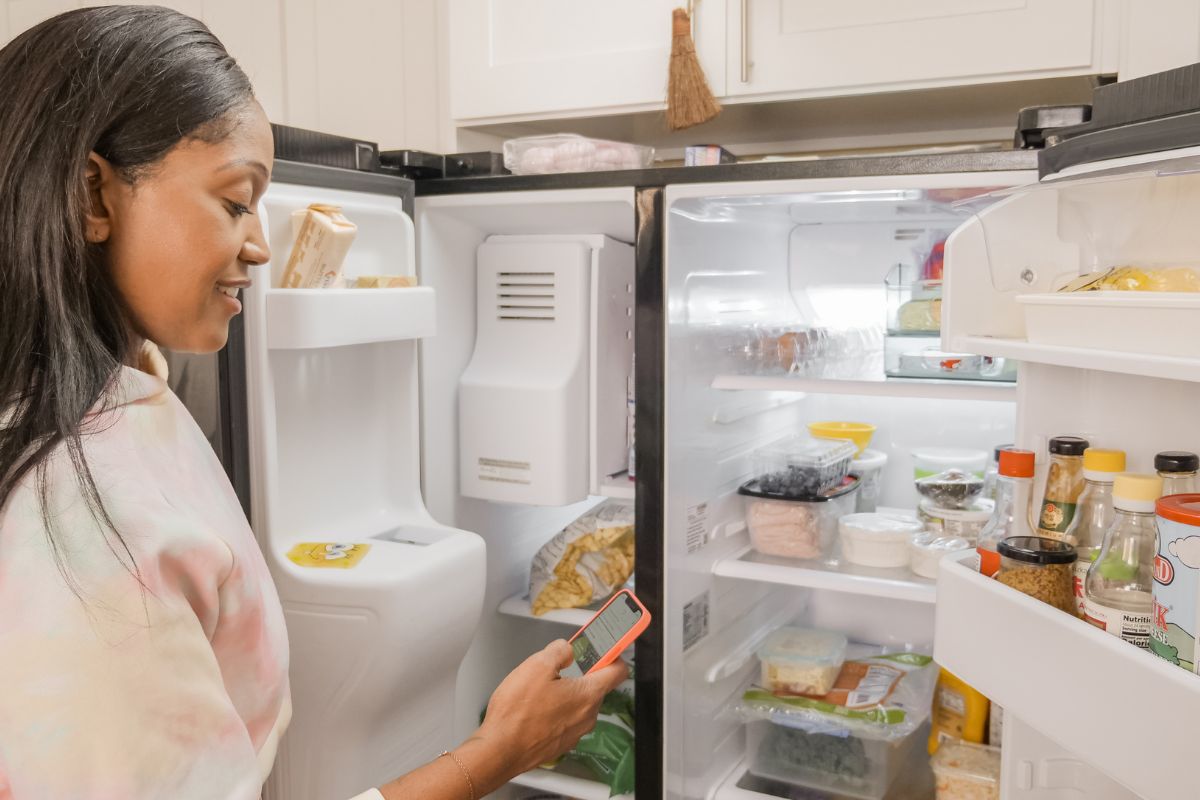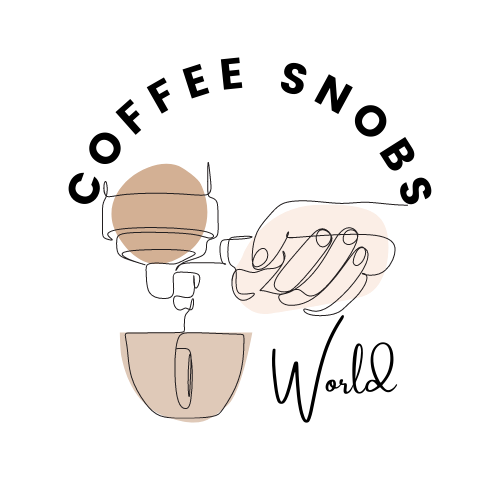How Long Does Brewed Coffee Last in the Fridge?
Can you put hot coffee in the fridge? If you store brewed coffee in an airtight container, it can stay safe for 1 to 2 weeks in the refrigerator. For the finest flavor, 2 to 3 days are ideal. In the fridge, coffee with milk or creamer keeps for two days. Brew coffee may last longer in the refrigerator if you store it in a sealed container.

Can You Put Hot Coffee in the Fridge?
According to professionals, you may store hot, freshly made coffee in the refrigerator for up to a week. While you can reheat it, it will not taste as great as a newly brewed cup. Before placing any hot beverage into the fridge, there are some concerns; safety should always be your primary priority.
You must consider the container you wish to store your coffee in. You might want to look into quicker alternatives to chilling your beverage. You can place a cup of hot coffee in the refrigerator, where it will cool. You will then remove your coffee after removing the unwanted heat.
How to Store Brewed Coffee
There are a few simple techniques to keep brewed coffee fresh immediately after brewing and for a longer period, from storing it in the refrigerator to freezing it in between sips. The coffee maker or a thermos is perfect for keeping your beverage briefly for sporadic daily consumption.
However, if you brewed too much coffee or like cold coffee with ice cubes, the fridge and freezer are two options for preserving brewed coffee. The freezer is great for long-term storage, and the refrigerator is great for keeping chilled coffee on hand when needed. You should pour the remainder of the pot into a carafe and place it in the fridge.
Beyond the two-hour window, keeping the coffee cold maintains its flavor and aroma. According to experts, you can keep coffee in the fridge for up to a week. Even reheating it from the fridge won’t produce the same quality of flavor as a newly brewed cup. Brew coffee may last longer in the refrigerator if you store it in a sealed container.
Eating for up to 3 to 4 days is probably safe when preserved. But the flavor probably won’t be all that great. If you add milk or creamer to your brewed coffee and leave it at room temperature, you should consume it within two hours.
Can Coffee Go Bad in the Fridge?
Brewed coffee may last longer in the fridge if you store it in a sealed container. Eating for up to 3 to 4 days is probably safe when preserved. But the flavor probably won’t be all that great. If you keep meat and fragrant foods out of your refrigerator, coffee won’t go bad there.
However, if your fridge contains meat or spicy food, a cup of coffee there will absorb the smell of the fridge and end up smelling (and tasting) awful. Coffee is best if you keep it in a mason jar.
The Ideal Temperature for Coffee
Most people have an intuitive sense of the ideal coffee temperature. Even if we might not think about the number, we know how bad coffee tastes, too hot or too cold. According to the National Coffee Association (USA), the ideal serving temperature for coffee is between 180 and 185 degrees Fahrenheit (82.2 and 85 degrees Celsius).
Others who enjoy coffee feel it should be between 155 and 175 degrees Fahrenheit (68.3 and 79.4 degrees Celsius). For higher-quality coffee beans, lower temperatures work best. You must carefully consider the effects of temperature on the flavors of the coffee.
How Long Does it Take for Hot Coffee to Cool in the fridge?
Numerous variables affect how long it takes for a hot cup of coffee to cool down in the refrigerator. Prepare your coffee in the morning and keep it in the fridge all night if you prefer a milder cup. Coffee typically needs between 15 and 60 minutes to cool down enough for you to drink it.
To prevent coffee from losing its flavor, pour it into an airtight container. Numerous variables affect how long it takes for a hot cup of coffee to cool down in the refrigerator. A rough estimate is often between five and thirty minutes. The best method to get an answer is to try it out for yourself, so before you look at the various elements, it’s essential to try.
Try placing a hot cup of coffee in an appropriate location and keeping an eye on the time because you might want your coffee at a different temperature than someone else. Take a sip of your coffee after a few moments. Put it back in the refrigerator and periodically check until it reaches the proper temperature if it’s still too warm.
Several things affect how quickly your coffee cools down, including:
- The dimensions and thickness of the cups
- The size of the cup rims
- The cup’s material is glass, plastic, or ceramic.
- The coffee’s original temperature
- The temperature in your space
- The location of the cup
- Is there a lid on it or not?
- Have you stirred the coffee?

Alternative Methods of Coffee Cooling
Coffee Cooling With an Ice Bath
Using an ice bath to cool down hot coffee will take about ten minutes. What you’ll need for this procedure is:
- Warm coffee
- A cup without insulation (preferably stainless steel)
- An ice and water bowl
- A spoon
You first pour freshly brewed coffee into the cup and then record its temperature. After that, pour the coffee into a container with ice and water and give it a few minutes to settle while stirring now and again. Check the temperature, and after about 10 minutes, you will discover it will be below room temperature.
The ice bath technique is the most preferred way for swiftly cooling down coffee; however, there is a disadvantage. You’ll have to buy or freeze your ice cubes if you don’t have a built-in ice machine.
Using Coffee Ice Cubes to Cool Brewed Coffee
Using ice cubes to cool your coffee will take about ten minutes. However, you will need to freeze some coffee in advance for this procedure if you monitor the temperature of your coffee after pouring it into a cup after making it.
You first chill the hot coffee with half a tray of ice cubes. The coffee may not get to room temperature after the ice cubes melt, which takes approximately 5 minutes. After adding the second half of the ice cubes, the coffee’s temperature will drop below room temperature after a few more minutes.
The coffee takes around ten minutes to chill down completely. It takes a whole tray of ice cubes to cool your coffee, which is a downside to this speedy way of cooling coffee. Reusable ice cubes are a substitute for coffee ice cubes.
Put Your Coffee in the Freezer
You will need about 40 minutes to freeze the coffee. First, fill your stainless steel pitcher with freshly brewed coffee and take its temperature. You then insert a spoon into the hot coffee to aid in the removal of heat. Check the temperature after 10 minutes, and you will discover that the coffee is still hot.
After that, check on the coffee every ten minutes and discover that its temperature is at room temperature after 40 minutes. Even though it takes the longest, freezing coffee does not require ice cubes, bowls, or frozen coffee. This can be an excellent choice if you’re not in a hurry to cool your coffee.
Cool Your Coffee With a Cold Wave Beverage Chiller
A different choice is to purchase a machine like the Cold wave Beverage Chiller. It comprises a purified water-filled cooling core in a square pitcher with a handle. For the cooling system to work, you must freeze the core for at least two hours. It is also advisable to freeze the product 24 hours before use for optimum performance.
You can fill the pitcher with up to 16 fluid ounces (0.47 liters) of a hot or room temperature beverage once the core has cooled sufficiently. After that, put the cooling core inside the pitcher and give it five minutes to cool. You don’t need to remove the core while serving the beverage; you may pour it straight from the pitcher.
Can You Refrigerate Coffee Beans?
The community of specialty coffee drinkers has long opposed refrigerated coffee. The main point of contention is that freezers and refrigerators have a lot of dampness. Due to their low moisture content after roasting, coffee beans are susceptible to absorbing moisture from their surroundings (hygroscopic).
When the original flavors absorb moisture, they get muddy, strange, and corrupted. The coffee beans resemble a shadow of what they once were in terms of taste. This humidity comes with flavors from neighboring meals in a freezer. You can be sure that you wake up in the morning to the smell of garlic or lasagna-infused coffee.
The chemical structures of coffee beans deteriorate more quickly in humid environments. An increase in bean moisture can start hundreds of chemical processes. This should occur during routine brewing, not the time when you are storing your coffee. Since microorganisms frequently require water to metabolize their food, they typically flourish in humid environments.
Although it’s improbable, microbial development is still possible in a freezer. You might believe that keeping the beans in a dry, airtight container can avoid these issues. However, condensation quickly accumulates on the surface of your food or coffee beans when you open an airtight container recently taken out of the freezer.
All of your current concerns about humidity can become worse instantly with this condensation. For the time being, be aware that storing coffee beans in your freezer might lead to several problems. Coffee bean freezer preservation proponents agree on one thing: if done properly, you can extend the life of your coffee beans.
As you’ve just read, it’s not simple to do this properly, but this is how. If you store extra beans in a completely airtight container and have more than you can eat in the next two to three weeks, freezing can help keep the flavor and freshness of the beans. The bag your beans arrive in when you buy them is therefore ineligible. You can put your beans in a different package.
Store them in smaller quantities—about enough for a week. Let the beans completely defrost to room temperature before opening the container once you’ve removed them from the freezer. Premature opening of the container will result in unpleasant, coffee-killing condensation.
What to Know Before Storing Coffee in the Fridge
It might take up to 40 minutes to cool when refrigerating coffee in the freezer. You should never keep your coffee in the refrigerator, whether whole or ground, even if it is in a container with a tight seal. Coffee acts as a deodorizer; therefore, it will absorb your fridge’s odors as it isn’t cold enough to keep coffee fresh.
You can store coffee in the refrigerator, but to avoid oxidation and scent absorption, you should seal it in an airtight glass container. The coffee, 14 days old and fresh from the bag, is the best. After opening, your best hope for a tasty cup of coffee is to store it in the freezer. Even though it won’t taste as good as your fresh coffee, it might be a little smoother.

Summary
Can you store hot coffee in the refrigerator? To avoid oxidation, you must use an airtight container, such as a mason jar. However, the only way to get the most out of your coffee is to make your own fresh brew iced coffee.

